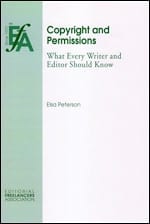Academic authors often feel confident in their subject matter expertise when writing a book or journal article. Many authors, however, feel less secure about their writing and editing skills. In my twenty-five plus years of experience, this assessment is usually off base. Most academic authors actually have solid skills needed to express themselves and their complex material.
Nonetheless, authors many times want editorial support prior to their submission or while they are writing their work. I have previously written about whether to “Go it alone or with a Guide.” If you have decided to utilize an editor, this post will focus on how you go about choosing one?





